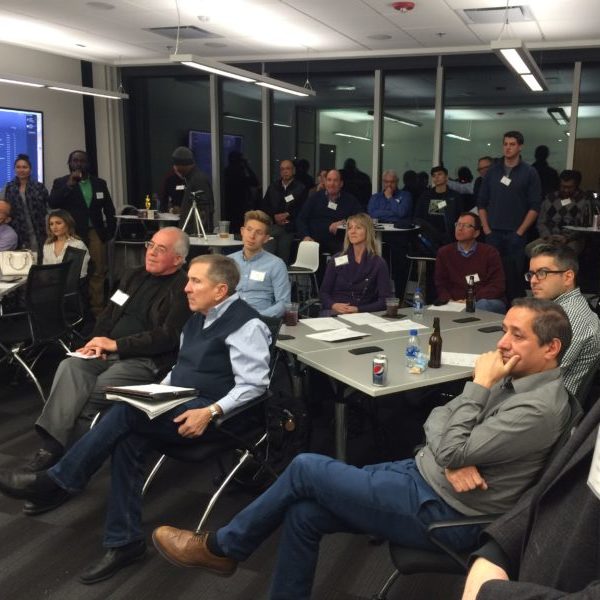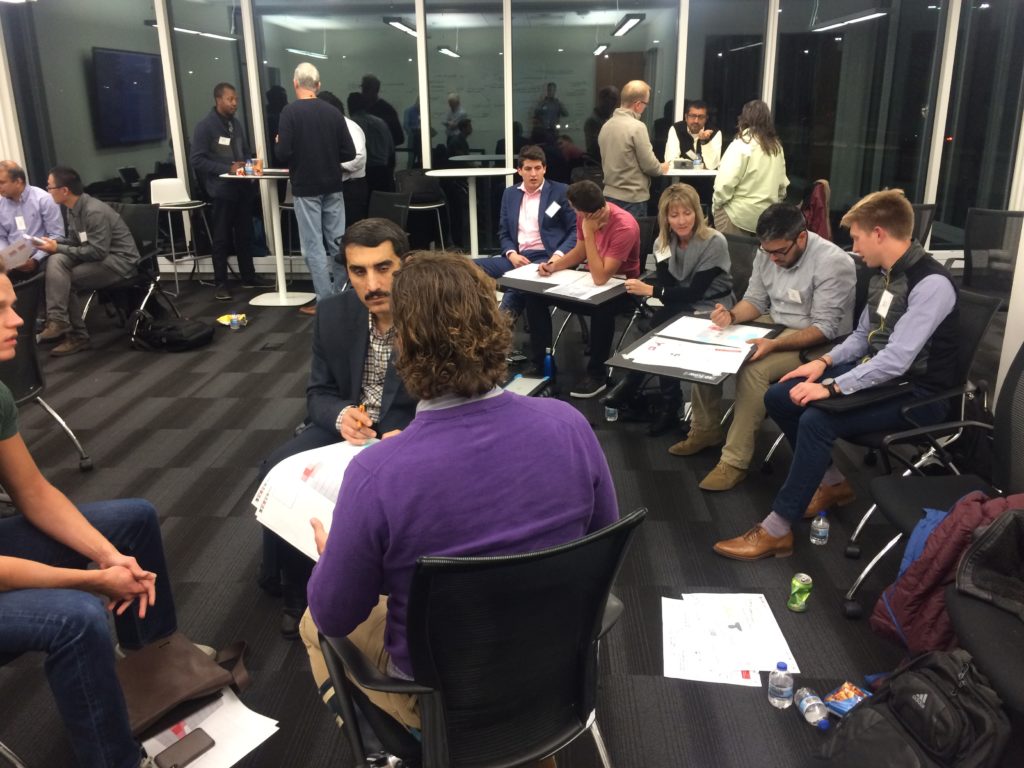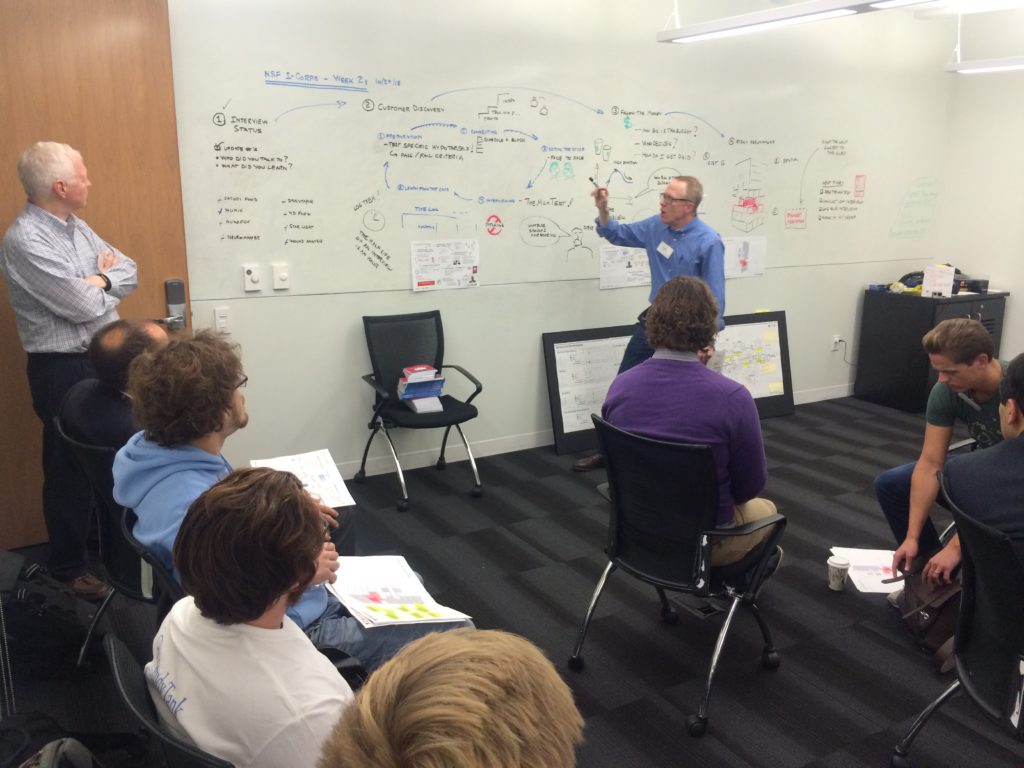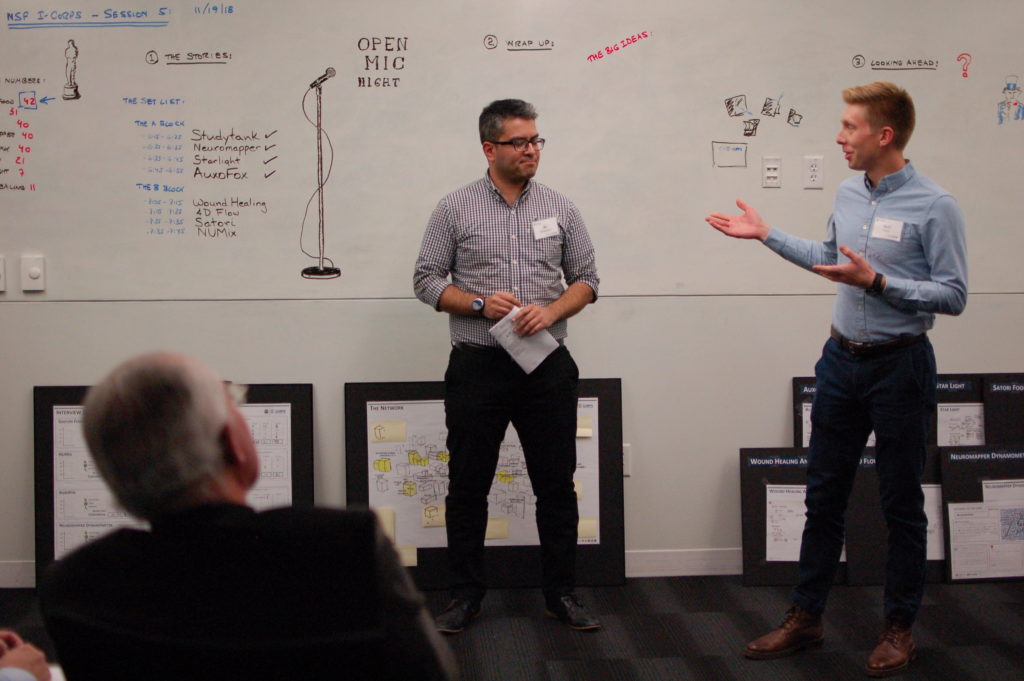
Fall Cohort: Teaching Experiments and New Participating Organizations
The Fall 2018 program (10/22/18 – 11/19/18) was an exciting one for the teaching team because of new participating organizations: Northwestern University and Aurora Health, and several teaching experiments we had conducted. A cohort of eight teams has completed the Fall 2018 NSF Milwaukee I-Corps Site program with 233 customer interviews (average: 29.1 interviews per team) .
Check out the full list of teams below:
- Satori Food Project (Concordia University) – vitamin enriched food products for anxiety disorders;
- NUMiX (Northwestern University) – sorbent materials to remove heavy metals in water;
- AuxoFox (Marquette University) – inventory loss risk-management for retailers;
- Neuromapper Dynamomenter (Medical College of Wisconsin / UWM) – in-situ motor control monitoring for brain tumor removal;
- Studytank (Milwaukee School of Engineering) – learning management system;
- 4D Flow (Medical College of Wisconsin / UWM) – diagnostic tool for brain aneurysms using cloud-based flow modeling;
- Star Light (Aurora Health) – clinical decision support tool for anticoagulation drugs;
- Wound Healing Analysis (University of Wisconsin-Milwaukee) – imaging tool for monitoring chronic wounds.
Teaching Experiments
At the end of every four-week program we collect participants’ feedback and use it to adapt our approach to introducing Lean Launch to faculty and students. Based on that, we have been steadily moving towards more immersive experiential learning workshops coupled with deep dive into customer discovery (a.k.a. “going outside the building”). The Fall 2018 cohort was a test bed for several experiments in teaching. Here is what we did:
Experiment 1: Shortening the workshops’ time from three- to two hours. Our hypothesis was that intensity would be higher and an extra hour “gifted” to the teams at the end (8:00 pm – 9:00 pm) would allow for mentor-team time and setting the stage for the week ahead.

Experiment 2: No PowerPoint presentations allowed (both the teaching team and the participants). We wanted to break loose from the tyranny of legacy PowerPoint slide decks for each workshop that we have developed over the previous cohorts. We wanted to leverage Brian Thompson’s whiteboard narration talent. Planning workshops and what we needed to capture on the whiteboard was time consuming, but rewarding. Many new ideas came out of the planning sessions.

Experiment 3: Open-mic team report outs and emphasize on story-telling. Traditionally, on the last day of the program teams would have a chance to tell a story of their customer discovery journey in a form of “lessons learned” presentation. Our hypothesis was that following a story arch of an I-Corps team journey of gaining understanding of customer needs and associated value propositions provide a good framework for teams to look closely at the data (interview notes and insights) and, maybe, notice patterns, a-ha’s and other nuggets that tend to be ignored in a PowerPoint presentation…

Interested in joining Milwaukee I-Corps?
We are now accepting applications for the Spring 2019. This cohort will begin on March 25, 2019 ending April 25, 2019. Apply now!